

 Admission Enquiry
For
B.E/B.Tech Courses (4 years UG Course) A.Y.2026-27
Admission Enquiry
For
B.E/B.Tech Courses (4 years UG Course) A.Y.2026-27
 Admission
Enquiry For B.Voc Courses A.Y.2026-27
Admission
Enquiry For B.Voc Courses A.Y.2026-27
 Admission
Enquiry For BCA & BBA A.Y.2026-27
Admission
Enquiry For BCA & BBA A.Y.2026-27
 Admission Enquiry
for
MBA for A.Y.2026-27
Admission Enquiry
for
MBA for A.Y.2026-27
 Admission
Enquiry for Five Years Integrated MBA (After 12th) for A.Y.2026-27
Admission
Enquiry for Five Years Integrated MBA (After 12th) for A.Y.2026-27
 Admission Enquiry
for
MCA for A.Y.2026-27
Admission Enquiry
for
MCA for A.Y.2026-27
 Admission
Enquiry
for M.E. for A.Y.2026-27
Admission
Enquiry
for M.E. for A.Y.2026-27
 Admission Enquiry
A.Y.2026-27
Admission Enquiry
A.Y.2026-27
 Online Mock Test
series
for UNDERGRADUATE
DEGREE COURSE in BCA / BBA / BMS / BBM / Integrated MBA |
Registration Form
Online Mock Test
series
for UNDERGRADUATE
DEGREE COURSE in BCA / BBA / BMS / BBM / Integrated MBA |
Registration Form
 Admission
State Level
Chapterwise, Combined Chapters
Practice & Mock Test Series Online for MHT-CET 2026 | Registration Form
Admission
State Level
Chapterwise, Combined Chapters
Practice & Mock Test Series Online for MHT-CET 2026 | Registration Form
 National Level
Online
Mock Test Series for
JEE 2026 | Registration Form
National Level
Online
Mock Test Series for
JEE 2026 | Registration Form
LOADING

Embarking on a transformative educational journey, TCET has pioneered cutting-edge learning experiences for over two decades. Our institution offers an extensive range of 37 courses across six disciplines, including Engineering, Technology, Vocational Studies, Computer Applications, Management Studies, and Working Professional programs. With new courses in Integrated MBA and MCA on the horizon, subject to regulatory approvals, we're expanding our offerings to 37 courses in the current academic year (AY 2025-26). Our comprehensive programs comprise 21 undergraduate, 11 postgraduate, 1 integrated program, and 5 Ph.D. programs, catering to students and working professionals alike.
Whether you're a fresh graduate or a seasoned professional looking to upskill, our programs are designed to help you achieve your goals. As we celebrate our Silver Jubilee in AY 2025-26, we invite you to join our legacy and embark on a life-changing journey. Register now and take advantage of our state-of-the-art facilities, expert faculty, research-driven learning, and vibrant campus life. Don't miss this opportunity to shape your future – register now for expression of consent and become part of the TCET family!
At TCET, we empower students through transformative education in engineering, technology, and professional courses, offering a wide range of programmes and courses. Empowerment means taking control of their lives and careers.
Our students acquire industry and profession-aligned Knowledge, Skills, and Attitudes (KSA), develop Intelligence and Wisdom (IW) for higher-order thinking, and cultivate the right Attitude, Competency, and Mindset (ACM) for industry readiness. This helps them develop higher-order skills like critical thinking, creativity, and innovation, leading to rewarding careers in their chosen industries.
We foster understanding of the interconnectedness of Individuals, Industry, and Institution (3I). Our students recognize trends, challenges, and opportunities that connect past, present, and future knowledge. This empowers them to navigate their career paths with confidence and purpose. To stay ahead in the digital age, our students also develop proficiency in 3Ts: Tools, Techniques, and Technology. This includes digital literacy and AI proficiency, enabling them to leverage cutting-edge technologies and drive innovation in their chosen fields. Through our programs, students develop essential skills in networking, connection-building, and relationship management. They achieve adequacy, self-sufficiency, and independence, contributing to their Personal MBA.
Ultimately, we empower students to unlock their full potential, achieve success, and make a meaningful difference in the world. Our transformative education helps students:
![]() Develop a growth mindset and adapt to changing environments
Develop a growth mindset and adapt to changing environments
![]() Foster creativity,
innovation, and entrepreneurship
Foster creativity,
innovation, and entrepreneurship
![]() Cultivate emotional
intelligence, empathy, and social responsibility
Cultivate emotional
intelligence, empathy, and social responsibility
![]() Prepare for the
challenges
of the 21st century and beyond
Prepare for the
challenges
of the 21st century and beyond
Join us at TCET and embark on a transformative educational journey that will empower you to achieve your dreams and make a lasting impact.
![]() Empowering Education:
Empowering students through education in engineering, technology, and professional courses,
helping
them take control of their lives and careers with advantages of TCET-USP.
Empowering Education:
Empowering students through education in engineering, technology, and professional courses,
helping
them take control of their lives and careers with advantages of TCET-USP.
![]() Comprehensive Educational Ecosystem:
TCET offers a comprehensive educational ecosystem, providing state-of-the-art
infrastructure,
cutting-edge technology, and innovative pedagogy, supporting students throughout their
learning
journey.
Comprehensive Educational Ecosystem:
TCET offers a comprehensive educational ecosystem, providing state-of-the-art
infrastructure,
cutting-edge technology, and innovative pedagogy, supporting students throughout their
learning
journey.
![]() Industry-Aligned Curriculum and Training:
TCET's curriculum is developed in collaboration with industry experts, ensuring relevance
and
employability, and provides hands-on learning experiences through projects, internships, and
practical training.
Industry-Aligned Curriculum and Training:
TCET's curriculum is developed in collaboration with industry experts, ensuring relevance
and
employability, and provides hands-on learning experiences through projects, internships, and
practical training.
![]() Expert Faculty and Research-Driven
Environment:
TCET has expert faculty comprising experienced professionals and academics, providing
mentorship
and guidance, and fosters a research-driven environment, encouraging students to engage in
innovative projects.
Expert Faculty and Research-Driven
Environment:
TCET has expert faculty comprising experienced professionals and academics, providing
mentorship
and guidance, and fosters a research-driven environment, encouraging students to engage in
innovative projects.
![]() Holistic Development and Career Support:
TCET focuses on holistic development, emphasizing essential life skills, and provides career
support through placement assistance, career counseling, and alumni networking
opportunities.
Holistic Development and Career Support:
TCET focuses on holistic development, emphasizing essential life skills, and provides career
support through placement assistance, career counseling, and alumni networking
opportunities.
⦾ KSA Development: Knowledge, Skills, and Attributes
⦾ Professional & Leadership Skills: Attitude, Competence, and Mindset
⦾ Research & Entrepreneurship: Innovation and Business Acumen
⦾ Social Responsibility: Social Sensitivity and Environmental Awareness
⦾ Holistic Learning: Multidisciplinary Learning and Global Perspectives
⦾ Knowledge & Skills: In-depth knowledge and practical skills
⦾ Critical Thinking: Problem-solving and analytical skills
⦾ Communication: Effective communication and collaboration
⦾ Professionalism: Career, Ethics and social responsibility
⦾ Lifelong Learning: Adaptability and continuous improvement
⦾ Domain Knowledge: In-depth knowledge of specific domain
⦾ Technical Skills: Proficiency in tools and technologies
⦾ Innovation & Design: Design, development, and innovation
⦾ Industry Readiness: Industry relevance and employabilit
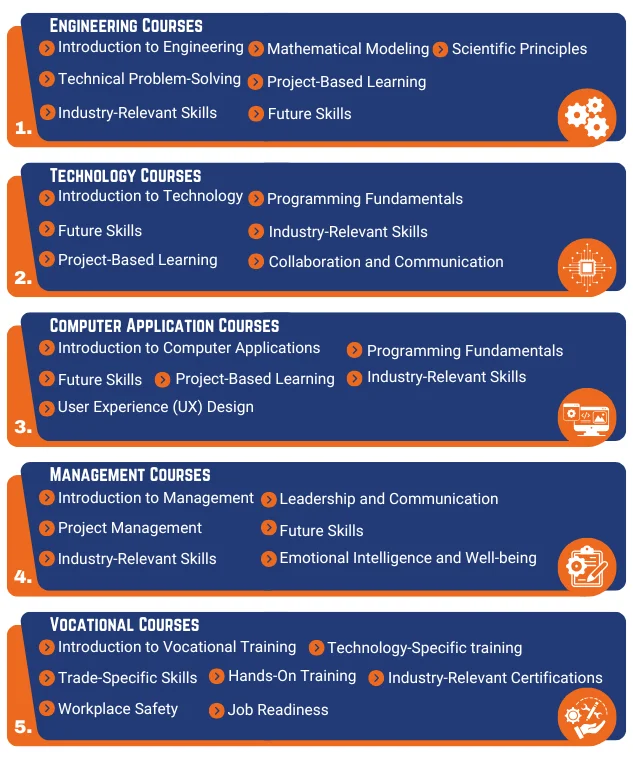
Thakur College of Engineering & Technology (TCET) is an autonomous and hindi linguistic minority Institute. It was established in AY 2001-02 with a clear objective of providing quality technical education in tune with international standards and contemporary global requirements. TCET offers 21 U.G., 11 PG., and 5 Ph.D. (Tech.) programmes. TCET is an ISO 9001:2015, ISO 14001:2015 & ISO 50001:2018 certified and certification has helped Institute to develop a student centric process driven system required for quality education in the 21st century.
As a result, Institute is accredited by NAAC with an "A" grade and all eligible programmes are accredited by NBA for three years. Some of the programmes are accredited multiple times. Moreover, all programmes are permanently affiliated with the University of Mumbai. TCET is the recipient of reputed IMC - Ramkrishna Bajaj National Quality Commendation Certification 2012 (Education) followed by IMC - Ramkrishna Bajaj National Quality Award 2015 (Education).
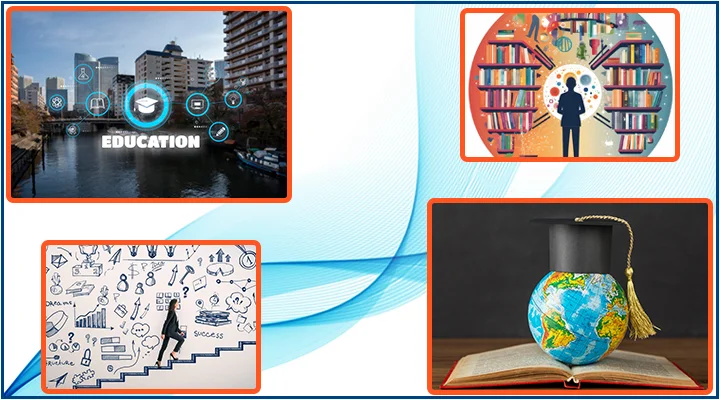
![]() Industry-Relevant Programs:
Aligning courses with industry demands to create job-ready graduates.
Industry-Relevant Programs:
Aligning courses with industry demands to create job-ready graduates.
![]() Engaging
Learning Experience: Fostering curiosity, motivation, and delight in learning.
Engaging
Learning Experience: Fostering curiosity, motivation, and delight in learning.
![]() Career-Oriented
Education: Preparing students for successful careers with futuristic skills.
Career-Oriented
Education: Preparing students for successful careers with futuristic skills.
![]() Career
Advancement Opportunities: Enhancing employability and career growth prospects.
Career
Advancement Opportunities: Enhancing employability and career growth prospects.
![]() Global Talent
Pool: Developing a diverse pool of skilled professionals for global industries.
Global Talent
Pool: Developing a diverse pool of skilled professionals for global industries.
![]() Entrepreneurial
Mindset:Encouraging innovation, creativity, and entrepreneurial spirit.
Entrepreneurial
Mindset:Encouraging innovation, creativity, and entrepreneurial spirit.
![]() Global
Citizenship: Preparing students for global mobility, cultural adaptability, and
responsible
citizenship.
Global
Citizenship: Preparing students for global mobility, cultural adaptability, and
responsible
citizenship.
![]() Lifelong
Learning:Instilling a growth mindset and love for continuous learning.
Lifelong
Learning:Instilling a growth mindset and love for continuous learning.
| Category | Branch | Year Of Inception | Course Duration | Intake |
|---|---|---|---|---|
| Engineering & Technology | ||||
| 22. M.E. Computer Engineering | 2010-11 | 2 Years | 18 | |
| 23. M.E. Information Technology | 2010-11 | 2 Years | 18 | |
| 24. M.E. Communication Technology & Management | 2010-11 | 2 Years | 18 | |
| 25. M.E. Mechanical Engineering | 2024-25 | 2 Years | 18 | |
| 26. M.E. Civil Engineering | 2024-25 | 2 Years | 18 | |
| 27. M.Tech. Artificial Intelligence & Data Science | 2025-26 | 2 Years | 18 | |
| Engineering (Course For Working Professional) |
28. M.E. Computer Engineering | 2024-25 | 2 Years | 15 |
| 29. M.E. Information & Tecnology | 2024-25 | 2 Years | 15 |
|
| Computer Application | 30. Master of Computer Applications(MCA) | 2025-26 | 2 Years | 120 |
|
| Management | 31. Master Of Business Administration | 2024-25 | 2 Years | 180 |
| 32. Five Years Integrated Degree In Master Of Business Administration (BBA/MBA) | 2025-26 | 5 Years | 60 |
| Category | Branch | Year Of Inception | Course Duration | Intake |
|---|---|---|---|---|
| Technology | ||||
| 33. Ph.D Computer Engineering | 2017-18 | 3 To 4 Years | 20 | |
| 34. Ph.D Information Technology | 2017-18 | 3 To 4 Years | 20 | |
| 35. Ph.D Electronics & Telecommunication | 2014-15 | 3 To 4 Years | 20 | |
| 36. Ph.D Mechanical Engineering | 2024-25 | 3 To 4 Years | 10 | |
| 37. Ph.D Civil Engineering | 2024-25 | 3 To 4 Years | 10 |
TCET aims to prioritize student placement and takes proactive steps to ensure their success in the job market. It's notable that they not only cater to eligible students but also extend their efforts to assist non-eligible students in finding opportunities. This inclusive approach speaks volumes about the institute's commitment to student welfare and career development. With a diverse range of accredited companies participating in campus recruitment, TCET appears to provide a well-rounded platform for students to kickstart their careers.
The institute has been accredited by major companies like Accenture, Capgemini, Infosys,
JP
Morgan Chase, Tata
Consultancy Services, Tech-Mahindra etc. At present more than 200 companies are visiting
for
campus recruitment
every year and almost all students showing interest in placement are placed through
campus. Read More
![]()
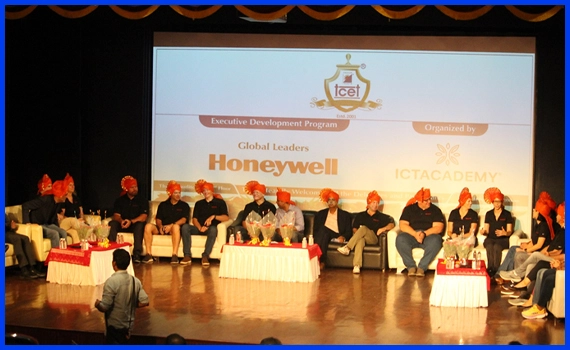
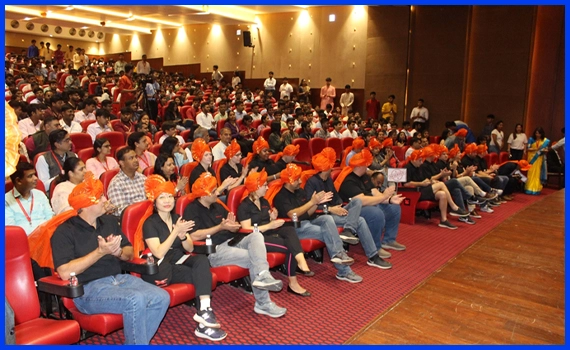
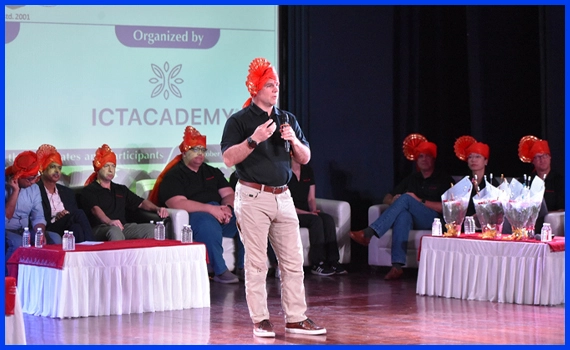
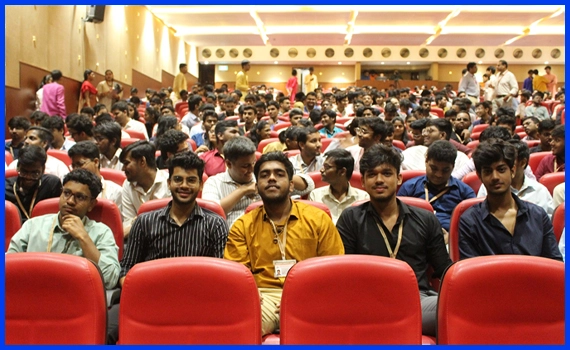
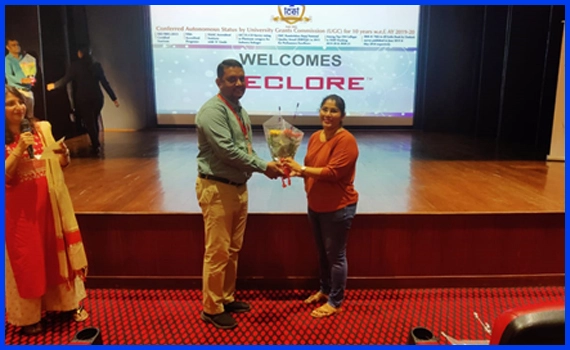
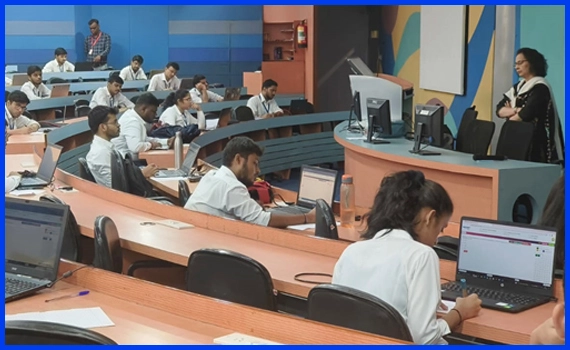
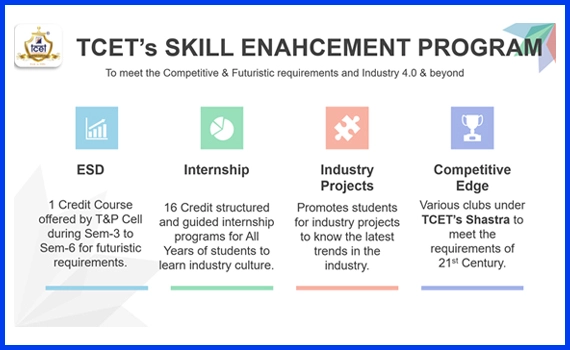
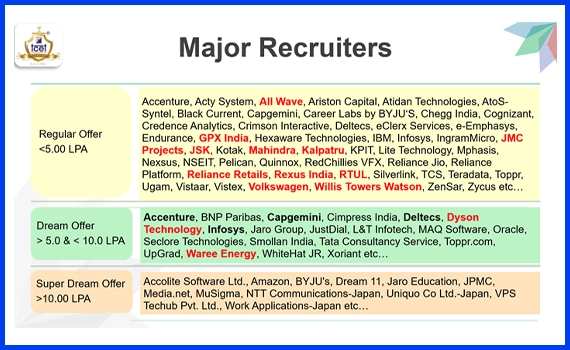
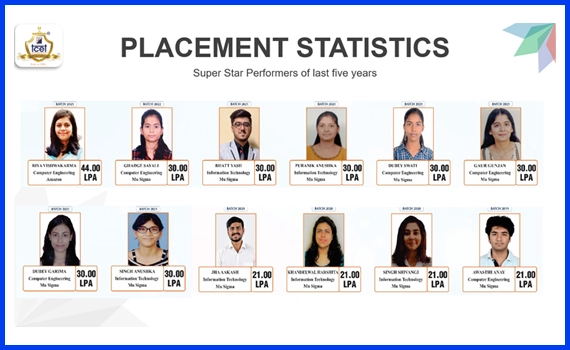
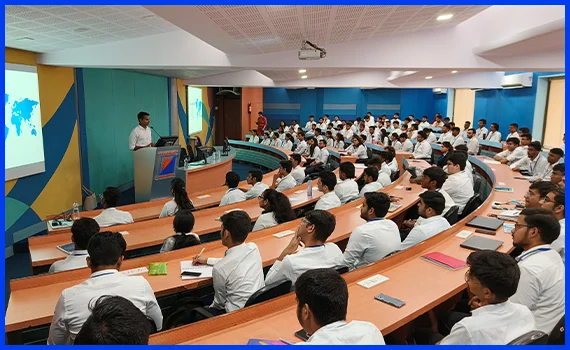
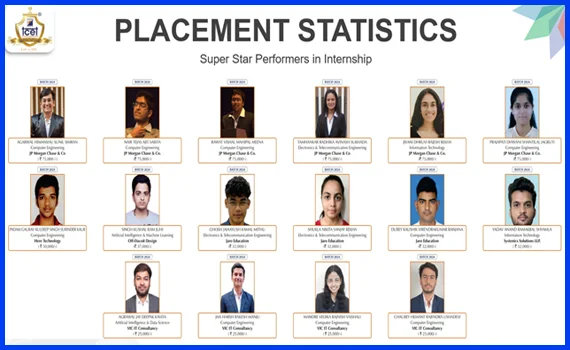
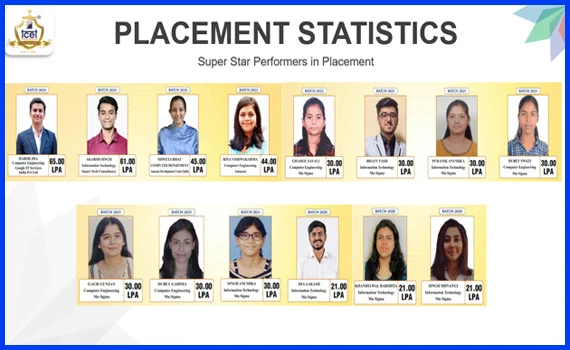
Embarking on your professional journey is a crucial step towards achieving your career aspirations. Our professional placement services are designed to streamline this process, connecting talented individuals like you with top-tier employers seeking skilled professionals.
In this competitive and fast-paced world, planning and decision making plays a
very important role for students to choose the right career. Thus, TCET has
established the Higher Education, Online Courses & Certification Cell (HOC
Cell) in order to help student to understand his/her final dream and make the
right career decision in a sensible manner. HOC section in-charge and one
coordinator from each of the core departments have been given the
responsibility of managing this Cell. Read More ![]()
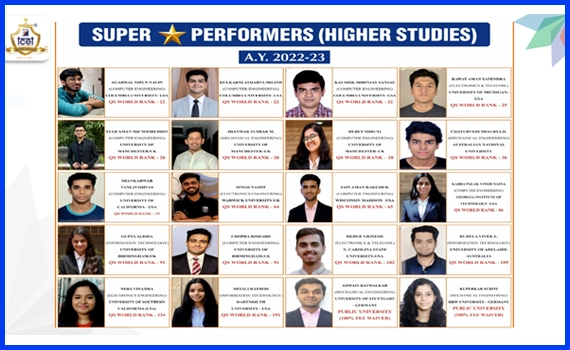
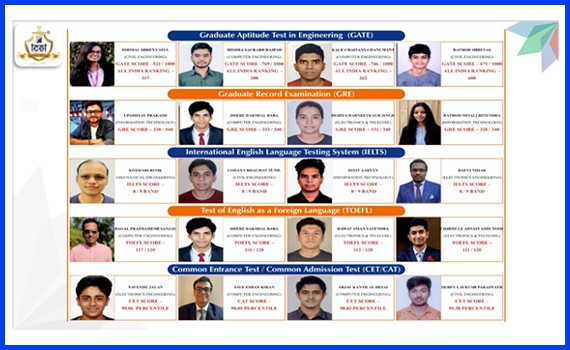
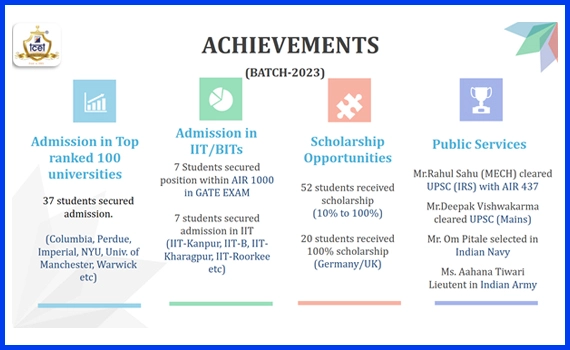
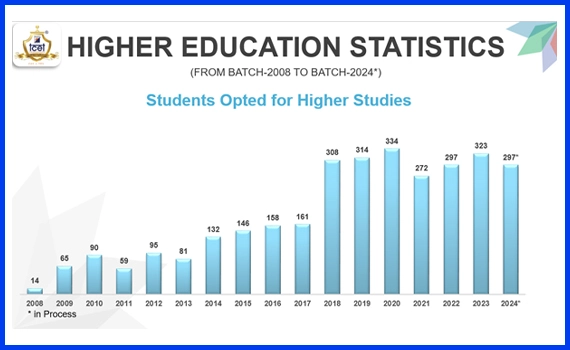
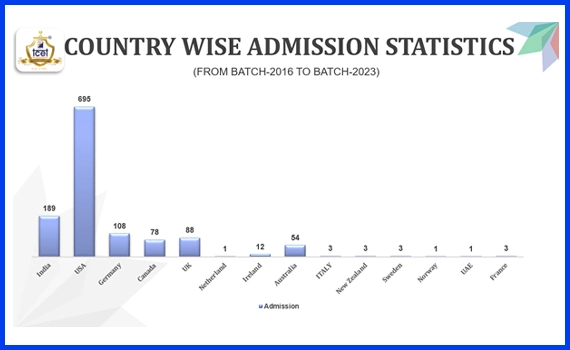
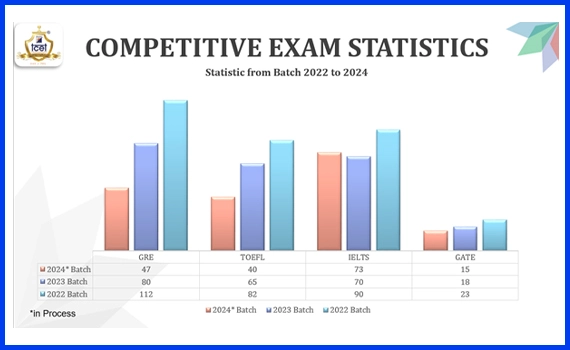
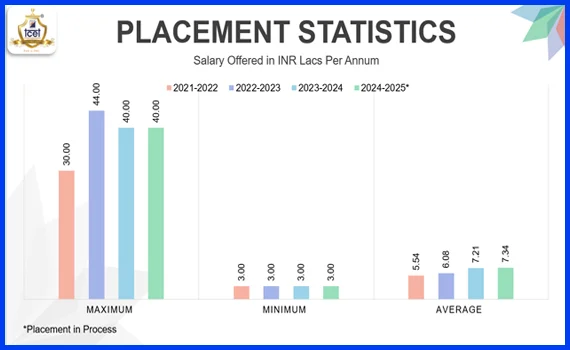
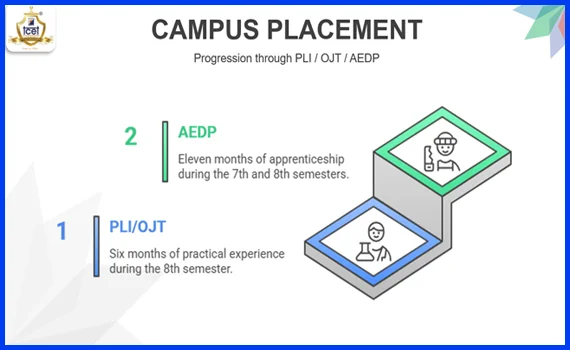
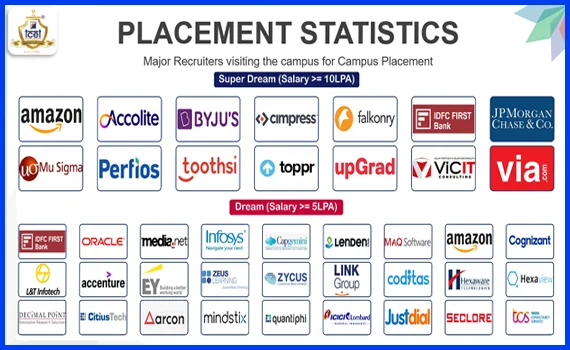
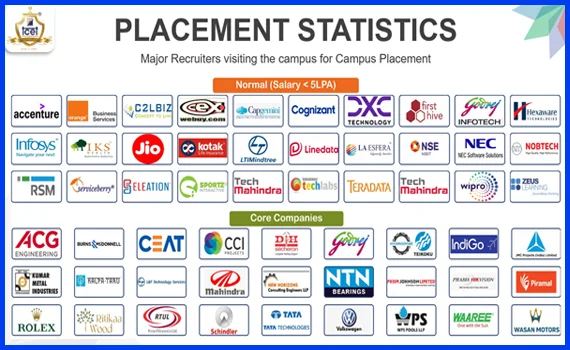
TCET has established a Defence Career Forum and counselling centre
within
its premises under the mentorship of Cdr. Vijay Pratap Singh (Retd.), a Defence
Veteran. In
addition, a full-fledged NCC unit (Army & Navy wing) is functioning since October
2021 under
the collaboration of Maharashtra NCC Directorate, DG NCC and Ministry of Defence,
New Delhi.
Read More ![]()
The TCET Entrepreneurship Development and Innovation cell is a
dynamic hub
for cultivating student entrepreneurs, guided by dedicated faculty members. The goal
of EDIC
Cell is to nurture an entrepreneurial spirit in young minds, as well as to mentor,
guide, and
aid future entrepreneurs in different aspects, with the objective to generate wealth
and
employment possibilities. Read More
![]()
Step into a world of academic excellence and vibrant campus life at TCET. Immerse yourself in an educational journey where knowledge merges with opportunity, and lifelong friendships are cultivated. Explore our state-of-the-art infrastructure, well-equipped laboratories, seminar halls, and fully functionality library and engaging classrooms. Experience the innovative facilities, inspiring faculty, and vibrant community that make TCET truly special.
Discover the essence of TCET through this captivating video tour, and get ready to embark on a transformative educational adventure. Welcome to TCET, where dreams become reality!